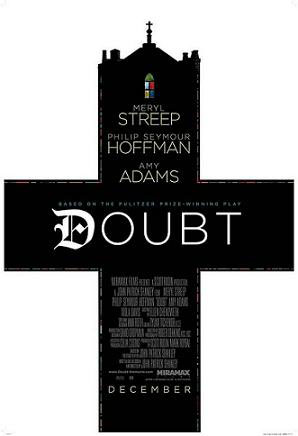By Emily Hoover | gargoyle@flagler.edu
As a play, “Doubt: A Parable” earned much praise, including a Pulitzer Prize and a Tony or two. However, as a film, the piece loses something crucial, despite its unquestionable brilliance as a story. It is a story, like so many others, that simply does not transition to film; it belongs on the stage.
“Doubt” is set in the Bronx in 1964. Mostly populated with Irish and Italian families, St. Nicolas School admits its first black student, Donald Miller (Joseph Foster). Father Flynn (Philip Seymour Hoffman), a compassionate and charismatic priest, preaches forgiveness and strives for a change in the system, which has existed for years on the basis of fear. The person who perpetuates this system by advocating severe discipline and strict rules, is the school principal, Sister Aloysius (Meryl Streep) — an iron-maiden who epitomizes fear for all students.
When the naive and kind-hearted Sister James (Amy Adams) observes a shared hug between Donald and Father Flynn (and notices the development of a personal relationship,) she calls upon Sister Aloysius. With no real proof, only “my certainty,” Sister Aloysius assumes something akin to lewd conduct and begins a solo crusade against Father Flynn, striving for his expulsion. The battle between superior and subordinate begins, terrorizing everything the church stands for, including moral sincerity.
No one can doubt Streep’s excellence as the frightening, intolerant Sister Aloysius. She is simply brilliant, yet viewers now expect nothing less. Hoffman holds his own against Streep, transmuting from friendly to angry in an instant. Yet, it is Adams and Viola Davis (who plays Donald’s weathered, troubled mother,) who truly shine.
Visually stunning and beautifully cast, “Doubt” will surely make a dent during award season. However, the film’s many themes lack clarity, for viewers never truly learn what happened between Father Flynn and Donald, obviously done to arouse doubt and force viewers to come to their own conclusions, but it seems as though “Doubt” leaves us hanging; in turn, we are doubtful of the film’s moral principles.



Be the first to comment on "Movie Review: ‘Doubt’"